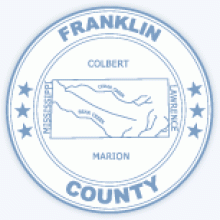In a reminder of just how poor telecommunications can be in this country, Franklin County in rural northwest Alabama has
formed a Task Force to investigate how it can get something better than dialup.
“The Internet has become an important as having electricity and water,” said Cole, an extension agent in Franklin County. “For our businesses to attract customers and to attract other businesses to come in here, we have to have broadband Internet access.”
But it turns out that they don't even have access to modern telephones in some instances:
Some Franklin County residents have access to dial-up Internet, which is slower than broadband high-speed Internet service. However, some Franklin residents still have a “party line” for phone service.
Who has refused to invest in these exchanges? AT&T is the major provider in the area (followed by CenturyLink) and it came to a Task Force meeting to talk about what "needs to be done to bring high-speed Internet to the county."
Unfortunately the report doesn't note what the ideas were but we would be surprised to learn it doesn't involve some form of federal or local subsidy to get AT&T to invest in this area. There is not much profit to be made, so AT&T is more likely to push these people into expensive 4G LTE wireless solutions than anything that would compete with modern connections.
This is not the first such meeting - as
noted by a previous article:
Commission Chairman Barry Moore said meetings were previously held to discuss the lack of high-speed Internet, but nothing materialized.
When it comes to local governments solving their problems by investing in themselves, AT&T falls over itself to stop them - even if it means an area will remain unserved.
We read of a conservative Republican holding out hope for federal grants to subsidize such a project.
In addition, Kreg Kennedy, a district field representative for U.S.



